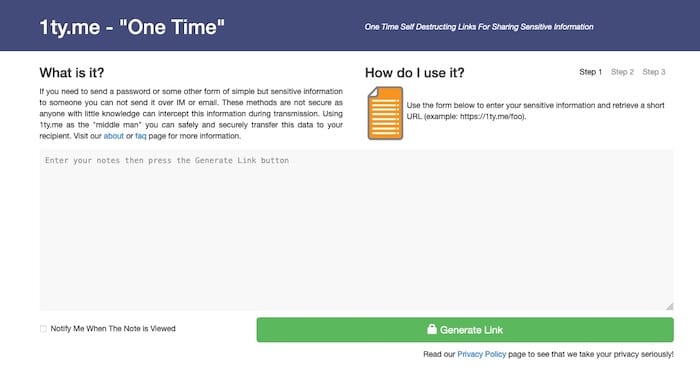Dans votre entreprise, vous utilisez d’innombrables applications, appareils et autres activités en ligne, comme les réseaux sociaux, avec autant de mots de passe. Ces derniers sont souvent oubliés, expirent ou sont compromis. Vous devez donc les réinitialiser et les renvoyer constamment à vos employés. Seulement, vous le savez, les mots de passe ne doivent pas figurer en clair dans un environnement non-sécurisé.
Quelle est la meilleure façon d’envoyer des mots de passe à vos employés sans compromettre la sécurité ? C’est ce que nous allons découvrir dans cet article.
1. De vive voix

On commence par une mesure de bon sens : quand le destinataire du mot de passe ne se trouve qu’à quelques mètres de vous, le mieux est de se déplacer pour lui donner de vive voix. C’est bien plus sécurisé qu’en utilisant un tchat interne à l’entreprise ou en envoyant un e-mail.
Votre employé ne travaille pas sur place ? Vous pouvez l’appeler par téléphone, si le niveau de sécurité des appareils mobiles ou fixes est satisfaisant, ou qu’il s’agit de login / mot de passe pas trop sensibles à destination de plateformes elles-mêmes déjà très sécurisées (comme les comptes sur les réseaux sociaux).
2. Par voie postale
Si le temps ne joue pas contre vous, l’envoi postal peut également être envisagé. Cette solution, parmi les moins utilisées, est pourtant une solution très sécurisée. Seulement de nos jours, il nous faut obtenir les éléments à l’instant où nous les demandons…
S’il s’agit d’un accès très sensible, vous pouvez faire un envoi en 2 temps (login, et mot de passe séparé), par courrier recommandé, et même si possible à deux adresses différentes. Le destinataire peut détruire les documents une fois utilisés.
3. Par SMS
Si le destinataire a un besoin urgent de ses accès, il est possible de lui transmettre par SMS mais là aussi, il faut prendre quelques précautions. Comme pour le courrier, il est sage de procéder en 2 temps et à deux numéros différents.
Dans un premier temps, l’identifiant de connexion peut être envoyé sur le numéro du responsable du destinataire, par exemple, ou bien sur son numéro personnel. Le deuxième SMS, contenant le mot de passe, sera envoyé à son numéro de téléphone professionnel.
De cette manière, si l’un des deux téléphones est hacké, espionné ou même volé, le pirate ne possèdera que la moitié des accès : cela ne lui sera pas très utile et vous aurez le temps de réagit en modifiant de nouveau le mot de passe, en cas d’alerte.
Comme la probabilité qu’une personne malveillante prenne le contrôle des deux téléphones concernés est négligeable, le risque est nettement limité.
4. Par Email
Bien sûr, il n’est pas question d’envoyer des données sensibles, comme un login et un mot de passe, via un email non crypté. Il est cependant assez simple de communiquer les mots de passe par le biais de courriels cryptés.
Pour crypter vos emails, vous pouvez recourir à une multitude de logiciels open source. Ces outils nécessitent un peu d’installation et de configuration initiale, mais cela en vaut la peine si vous devez envoyer beaucoup d’emails à caractère sensible. Vous pouvez vous tourner vers un outil comme Enigmail.
À lire aussi : Sécurité : 5 logiciels pour chiffrer vos emails
5. Avec un outil d’envoi de mots de passe sécurisé
Aucune des solutions énumérées jusqu’ici ne trouve grâce à vos yeux ? Il existe une dernière solution : utiliser l’un des nombreux services spécialisés, accessibles en ligne.
Vous pouvez utiliser ces services pour envoyer un message qui s’autodétruira une fois que le destinataire l’aura visualisé, ou passé un délai que vous aurez fixé.
Pour vous assurer que vous utilisez cette méthode en toute sécurité, veillez à envoyer le mot de passe seul, sans informations sur la fonction du mot de passe. Vous pouvez envoyer un courriel à votre destinataire pour lui faire savoir que vous allez lui envoyer le nom d’utilisateur et le mot de passe d’un service spécifique, puis lui envoyer les informations par l’intermédiaire de l’un des services énumérés ci-dessous.
1ty.me

1ty.me n’exige pas de création de compte. Il suffit d’entrer les informations dans la zone de texte et de cliquer sur « Générer un lien ».
Copiez le lien et envoyez-le à votre correspondant. Une fois le lien visité, il est détruit et ne peut plus être revu.
Noteshred

Noteshred est gratuit mais nécessite l’ouverture d’un compte. Une fois votre compte créé, vous pouvez envoyer une note directement à partir de l’interface.
Noteshred montre également votre activité : vous pouvez voir si une note a été reçue et lue, ou si elle a été déchiquetée.
Quick Forget

Quick Forget vous permet de définir un « secret » à consulter un certain nombre de fois, puis à l’oublier après un nombre d’heures que vous déterminez.
Comme pour les autres services, vous aurez un lien à envoyer à votre destinataire, et si le secret a été consulté le nombre de fois prévu, ou si le temps a expiré, le secret a disparu.
À lire aussi : 9 environnements de développement (IDE) PHP à connaître
Afin d’assurer la sécurité de vos comptes entreprise, pensez également à respecter les bonnes pratiques pour bien sécuriser vos mots de passe.
Nous vous conseillons également l’utilisation d’un gestionnaire de mots de passe pour éviter d’oublier vos mots de passe ou pire, de renseigner le même partout ! Implémenter une telle solution dans votre entreprise limitera également l’envoi de mots de passe entre collaborateurs.
Vos outils d’entreprise vous semblent peu sécurisés ? Des experts peuvent diagnostiquer votre réseaux et vos logiciels et renforcer leur sécurité. Postez votre projet sur Codeur.com pour recevoir des devis.














